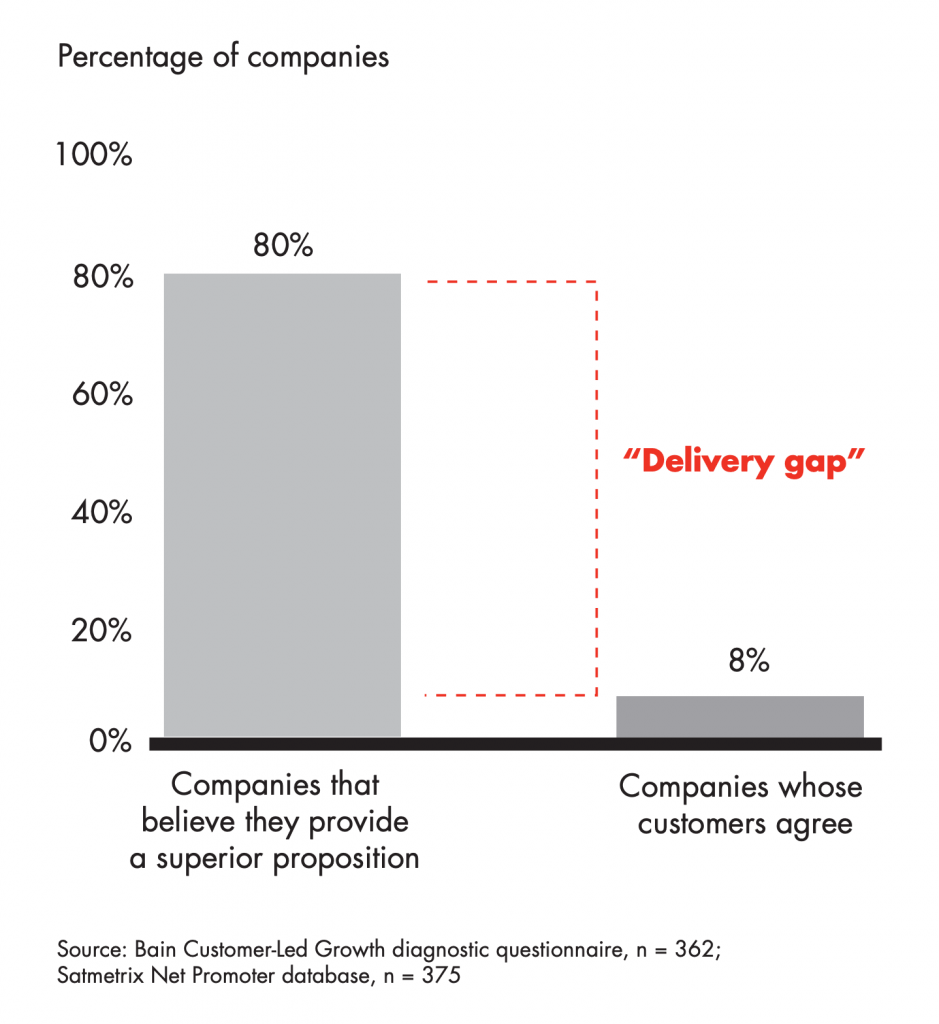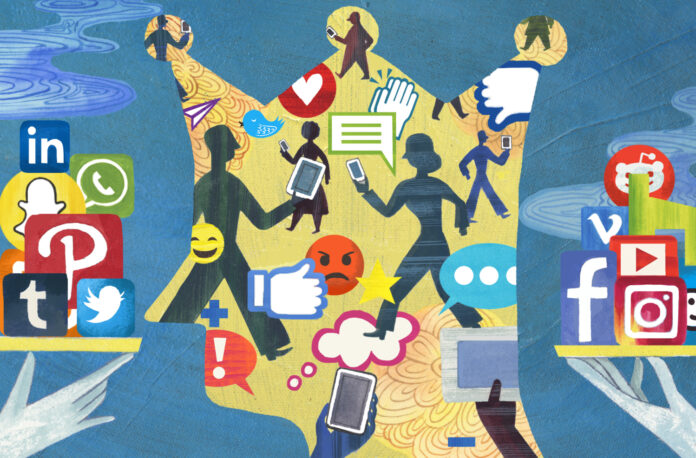The link between brands and users has been radically transformed and the key now is, according to the author, knowing how to use technology to establish the usual: the right relationships, because otherwise we run the risk of generating resentment.
Paco Trave (@pacotraver), a psychiatrist with extensive experience running hospitals, talks on his blog about the mania we all have for telemarketers, those sociopathic companies. In your brilliant postPaco writes:
«Those who read my previous post already know that I have a special grudge against telemarketers, because all of them -like almost everyone- have disappointed me, deceived me, overcharged me and have not respected my interests in any case and I have almost always been forced to buy a pack where the TV (which I do not use) is integrated.
[...] It happens with the teleoperators and it also happens with the administration and of course with the health administration and it happens more with those entities that are most necessary to us. […] The resentment grows as we get closer to certain institutions that we find necessary. "
What Paco talks about is the same as what Bain tells in his well-known document “Closing the Delivery Gap” on the difference between the perception of clients and that of companies on the delivery of the same services.

The study shows that, although 80% of companies believe they do a good job in managing their clients, they only share this opinion in 8% of cases. That is 90% of those who believe they serve their customers well do not succeed.
Paco's description seems much closer and more recognizable to us: Paco talks about resentment and anger, the feelings we have towards some brands that, from what Bain has seen, we're not the only ones to have.
1. The rancor… to whom?
In this century, in addition to our family, our friends, our neighbors, some quite curious entities have appeared in our reality, because of how familiar they are to us and how strange they are. Many of them we thought we knew: who had not heard of Telefónica or Vodafone? Who didn't have an account? Santander or in Bank of Madrid? We have known them all our lives: they appeared on TV with advertisements in which they came out very favored, they appeared in the newspapers when we read them with articles that mentioned how they worked inside.
In the last century, when you were associated with one of these highly admired companies, knew where to find an office with a sign on the door and could talk to someone. If there was a problem, generally that someone was in charge of the problem and, at the very least, he could inform us of his situation.
In the last 20 years, almost without realizing it, the relationship we had with these brands has moved to the digital world, where we each do what we like, when we like, through the channels that have been made available to us. In other words, Paco, the manager of bank Z, has disappeared from my life and now I contact bank Z directly on their website, in their call center, in their chat. Bank Z itself is my direct contact in most of my transactions with him. He writes me emails, calls me on the phone...
Bank Z is a social actor. So is Insurance S and Phone Company T which makes Paco furious. All of them have their own will and capacity for action: they sign the contract with me, they negotiate, they do. With these new social actors, people want to establish the usual: correct relationships according to what we share.
Hence the resentment.
2. The grudge… why?
That: what are they reproached for, these new guys? what happened for that fewer than 1 in 10 are happy with those relationships? How is it possible that Paco Traver, a highly cultured psychiatrist, has a "grudge" against a special type of company?
If we look at the twitter account of the companies or the website of any user association, there are multiple complaints: some have to do with prices that are not respected and contracts that are not fulfilled, but the majority are a collection of steps that end up giving an absurd story. There are multiple examples that any of us can refer to:
· That mortgage process in which, by including the garage in the operation, everything had to be started over, including sending the DNIs,
· That marketing message from your home insurance that reaches you when just when you are in a serious preoperative period that is paid by the same company,
· Those 8 SMS that arrive in one morning notifying you of things and that you can't stop,
· That portability that never happens and nobody seems to be able to solve, when one is without a phone,
· That cancellation of a contract due to death in which they tell you that the holder has to call (yes, yes, that also happens).
Surely you, dear reader, also have an indelible memory of such an experience, with some of these new digital, automatic… deaf actors. Worse still: surely all the adults around you have one or more stories like this. You realize? Everyone.
Such a deleterious effect needs explanation, which may be incapacity, personal mania, or deliberate action. As incapacity or animosity towards one does not seem likely in such large and powerful actors, comes to the conviction that it is deliberate, and therefore that it is with some self-interested intention or that some enemy agent has infiltrated the organization to harm it with these absurd behaviors.
People with technology savvy and experience in this type of company are convinced that it is a problem of incompetence, but it does not seem likely that all companies in certain industries will unanimously select their incapable executives, much less that it is something common to all countries.
It seems that the problem is universal and, as always when a problem is universal, the cause must be structural. As it only happens in the new social actors, who live in automatic systems, the root must be there.
3. #GOLEM: crazy automation
In his article, Paco reflects on something he knows very well: hospitals from inside and, of course, he nails it.:
«… the end result is that no one has the complete key to the process, which means that no one knows what is happening to me, no one has a button to understand my complaint and even the family doctor can be left unaffected by ignorance of the process and worse : nobody understands my complaint. Or put another way: Hospitals work like an assembly line, no matter how much digitization there is, because the digital revolution continues to operate according to a manufacturing model. And a factory model is protocolized to function in sealed compartments where each operator only knows the manufacturing segment that belongs to him but does not know the globality of the assembly»
Here comes the magic. Paco is able to describe the problem in “human” terms.
«… the individual loses control of the entire process, something that Rousseau defined as alienation. Protests, complaints or the subjective feeling of neglect, even though there is a complaints and claims department, are never resolved and not because of the psychopathy of the employees, but because the system is indeed sociopathic or, better yet, insane: it lacks a frontal cortex, it is deafferentized »
In the hospital that is described, but also our bank or our telco, the new social actor is an amalgamation of processes, systems, protocols with which none of us can establish a dialogue. There is no place where behavioral awareness resides part of the hospital as a whole. There is no place to establish a specific dialogue with me.
According to Wikipedia,
«Un golem it is a personification […] of an animate being made from inanimate matter […] The golem is strong, but not intelligent. If he is ordered to carry out a task, he will carry it out in a systematic way, slowly and carrying out the instructions in a literal way, without any question »
Famous in this sense is an anecdote, according to […] he asked the golem to go "to the river to draw water" to which the golem agreed, but to the letter: he went to the river, and began to draw water from it without stopping, until it ended up flooding the city.
Automatic systems have one difference from golems: they are fast. Everything else applies to them.
4. In summary
We have designed our automatic systems from analytical thinking. We've broken down problems into chunks that we've solved with maximum efficiency, and we've come up with crazy systems that are missing two things:
understand and manage their behavior aggregate y
“be able to listen and accept the response of the “other” to adjust the behavior.
The first point is more important the more complicated the system is, because there are too many separate bits for consistent behavior. Imagine making a body walk without a brain to give the order.
The second point is more important more critical, more intense or more present in our lives is the system. Imagine that your father did not recognize you. Telcos and medical processes have served the perfect storm.
The solution must necessarily be to provide the piece that the Golems do not have, the one that allows them to manage their behavior towards each one of us.
Or, as the technicians would say: the component with which to manage the emergent behavior of the complex system according to context of each client. And now you can.
You can also read this post at Technological Atlas




